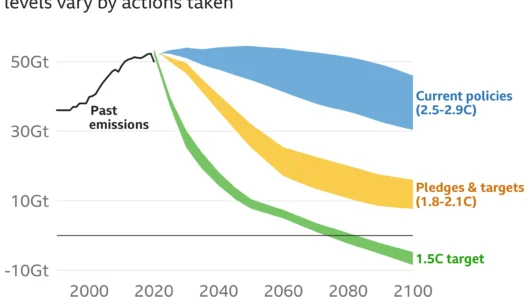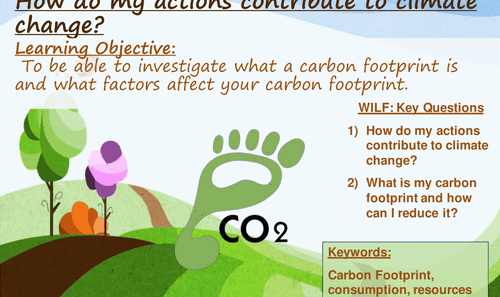In the modern era, the pervasive presence of plastics has rendered our planet profoundly vulnerable to the ravages of climate change. This ubiquitous material, once lauded for its versatility and durability, has transformed into a double-edged sword, prompting both innovation and immense environmental peril. Understanding the intricate relationship between plastic consumption and global warming is paramount for formulating effective solutions to mitigate its dire impacts.
To fully comprehend this crisis, it’s essential to examine the various types of plastics, each contributing differently to environmental degradation. Plastics can be categorized into several classes, including polyethylenes, polypropylenes, and polyvinyl chlorides. These polymers are ubiquitous, gracing everything from packaging materials to automotive parts. Their lightweight yet resilient nature has entrenched them as a staple in industries worldwide, leading to astronomical levels of consumption.
The genesis of most plastics lies in fossil fuels, particularly crude oil and natural gas. The extraction and refining of these resources are energy-intensive processes, generating significant greenhouse gas emissions. Consequently, the reliance on fossil fuels to produce plastics directly contributes to climate change. It is estimated that the plastic industry could account for 15% of global carbon emissions by 2030 if current production trends continue unchanged. This alarming projection underscores the urgent need to reassess our plastic dependence.
Another critical factor is the lifecycle of plastic products. Plastics are not biodegradable; instead, they fragment into microplastics, which continue to pollute our ecosystems. The production, distribution, consumption, and eventual disposal of plastic products release a myriad of pollutants into the atmosphere. Moreover, incineration and landfilling of plastics yield toxic emissions, aggravating air quality issues and further exacerbating global warming. The social and health implications of plastic waste are undeniable, with marginalized communities often bearing the brunt of environmental injustices caused by waste management practices.
It is also essential to consider the economic dimensions of plastic consumption. The global plastic market is worth hundreds of billions of dollars, which incentivizes mass production and consumption. This economic drive fosters a throwaway culture, encouraging consumers to prioritize convenience over sustainability. A significant percentage of single-use plastics, such as straws, bags, and bottles, are used for mere minutes before being discarded, contributing substantially to landfills and oceans across the globe.
Addressing the issue of plastic pollution involves multiple strategies, starting with a paradigm shift in consumer behavior. Education and awareness are crucial in fostering an informed citizenry that recognizes the long-term costs associated with plastic usage. By promoting sustainable alternatives, such as reusable containers and biodegradable materials, we can reduce our dependency on conventional plastics. Additionally, implementing policies that advocate for extended producer responsibility (EPR) can motivate manufacturers to design products that minimize environmental impact throughout their lifecycle.
Legislative action must also be a key component of addressing the plastic crisis. Governments must collaborate to establish stringent regulations that limit plastic production and encourage recycling initiatives. Bans on single-use plastics have been implemented in various jurisdictions, illustrating the power of policy in combating plastic waste. By imposing taxes on plastic production, incentivizing innovation in biodegradables, and funding research into alternative materials, policymakers can lay the groundwork for a more sustainable future.
Moreover, the role of businesses cannot be overstated. Corporations must embrace corporate social responsibility, taking proactive measures to reduce their plastic footprint. Implementing sustainable sourcing practices, investing in eco-friendly innovations, and committing to transparent supply chains are essential steps in fostering corporate accountability. By aligning business models with environmental priorities, companies can significantly diminish their impact on climate change while simultaneously appealing to a more conscientious consumer base.
Innovation in materials science provides promising opportunities to combat plastic waste. Research into bioplastics, derived from renewable resources, and innovative recycling methods can revolutionize the industry. Enzymatic recycling, for instance, leverages organisms to break down plastics into their monomeric constituents, facilitating the creation of new, high-quality products. Such advancements could mitigate the environmental toll of traditional plastics while promoting a circular economy, wherein materials are perpetually repurposed.
Public engagement and grassroots movements are vital components in the fight against plastic pollution. Organizations worldwide are mobilizing communities to advocate for cleaner environments, pushing for local and national initiatives aimed at reducing plastic use. Participatory efforts, including beach clean-ups and educational campaigns, not only raise awareness but also foster a sense of stewardship among individuals toward their natural surroundings. Collective action can spur momentum for systemic changes at broader levels of governance.
In conclusion, the intersection of plastic consumption and climate change poses one of the most formidable challenges of our time. Multifaceted strategies encompassing consumer behavior, policy reform, corporate responsibility, and innovative solutions are crucial in confronting this pressing issue. Empowering individuals, fostering collaborations, and embracing sustainable alternatives can pave the way toward mitigating the colossal effects of plastic pollution on our planet. A concerted effort is imperative in our quest to reclaim our environment from the jaws of an unrelenting plastic pandemic. The health of our planet and future generations depends on the actions we take today.







